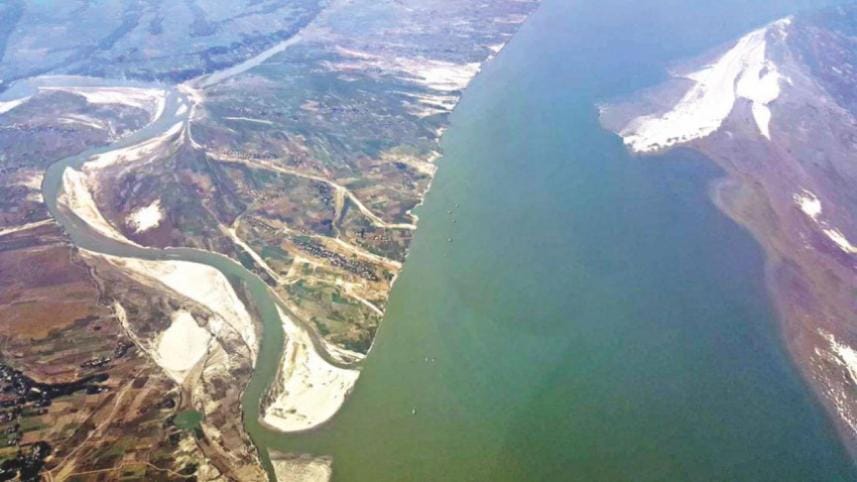Delta Plan 2100: Taken up without enough study

The newly adopted Bangladesh Delta Plan 2100 was not prepared following adequate studies and consultation with relevant stakeholders, National River Conservation Commission (NRCC) Chairman Muzibur Rahman Howlader said yesterday.
Speaking at a conference in the capital, he also said he doubted if the mega government scheme for ensuring food and water security and fighting disasters through water resource management would yield the expected outcome.
Bangladesh Poribesh Andolon (Bapa) and Bangladesh Environment Network (BEN), in association with 40 other green organisations of the country, organised the special conference, titled “Delta Plan 2100 and Sustainable Development in Bangladesh” at the KIB to review the scheme and come up with recommendations.
“I think the delta plan was not taken up after consultation with the people involved with it ... although it has been approved by the prime minister,” Muzibur said.
“I have no idea how much opportunities and benefits it [the plan] will bring for us ... We have to work on it,” he said, adding that no hydromorphological study was conducted for the mega project.
Fixing these things and further research are needed for the implementation, he said.
He also suggested that the government consult other South Asian countries who share rivers with Bangladesh and urged Bangladeshi lawmakers to have a political goodwill to implement the plan.
On September 4 last year, Prime Minister Sheikh Hasina at a meeting of the National Economic Council approved the century-long Delta Plan 2100, prepared by the General Economics Division (GED) of the planning ministry.
The government has planned at least 80 projects and decided to spend about $37 billion by 2031 for the implementation of the scheme.
After the approval came, environmentalists and climate experts alleged that the plan was not taken up on the basis of adequate studies and would not be helpful in the long run.
Speakers at yesterday's programme raised the same issue and the NRCC chief echoed their views.
But the government has been dismissing the objections since the beginning.
Noted climate expert and Brac University's Prof Emeritus Ainun Nishat said many old government projects were included in the delta plan which needed revision.
He also said the government still believed water is necessary “only for human beings”. But it has to think about other living beings while initiating the scheme.
Later in the afternoon, the two-day conference ended with the adaptation of a proposal with 38 recommendations mostly focusing on the modification of the delta plan through studies and consultation with experts in this sector.
The proposal also recommended that transparency and accountability were ensured in all aspects of the scheme by the government.
Several researchers, academicians, environmentalists and civil society representatives from home and abroad, including from India, Nepal and the US, took part in the programme where about 92 research papers were presented in different sessions.
Bapa President Prof Abdullah Abu Sayeed, also the founder of Bishwo Shahitto Kendro, noted rights activist and green activist Sultana Kamal, and BEN Founder Nazrul Islam, among others, spoke on the concluding day of the conference.
 For all latest news, follow The Daily Star's Google News channel.
For all latest news, follow The Daily Star's Google News channel.
Comments